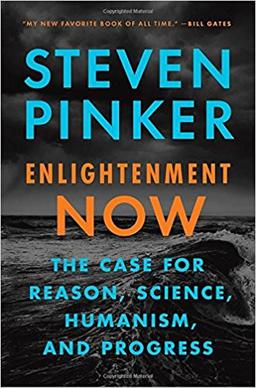
Who is Steve's friend?
Nobel laureate, best-selling author, and groundbreaking psychologist Daniel Kahneman is also a friend and former business partner of Steve’s. In discussing Danny’s new book Noise: A Flaw in Human Judgment, the two spar over inconsistencies in criminal sentencing and Danny tells Steve that “Your attitude is unusual” — no surprise there.
Who holds the record for most names memorized in 15 minutes?
memory tournaments and holding the record for most names memorized in 15 minutes (235!). But Nelson Dellis claims he was born with an average memory and that anyone can learn his tricks. Steve gives Nelson’s techniques a shot, without much hope — and is surprised by the result.
Who holds the record for most names memorized in 15 minutes?
memory tournaments and holding the record for most names memorized in 15 minutes (235!). But Nelson Dellis claims he was born with an average memory and that anyone can learn his tricks. Steve gives Nelson’s techniques a shot, without much hope — and is surprised by the result.…
Who is Daniel Kahneman?
Nobel laureate, best-selling author, and groundbreaking psychologist Daniel Kahneman is also a friend and former business partner of Steve’s. In discussing Danny’s new book Noise: A Flaw in Human Judgment , the two spar over inconsistencies in criminal sentencing and Danny tells Steve that “Your attitude is unusual” — no surprise there.…
Who believes that all drugs should be legalized?
As a neuroscientist and psychology professor at Columbia University who studies the immediate and long-term effects of illicit substances, Carl Hart believes that all drugs — including heroin, methamphetamines, and cocaine — should be legalized. Steve talks to Carl about his new book, Drug Use for Grown-Ups , and Carl tells Steve why decriminalizing drugs is as American as apple pie.…
What is Carl Hart's opinion on drugs?
As a neuroscientist and psychology professor at Columbia University who studies the immediate and long-term effects of illicit substances, Carl Hart believes that all drugs — including heroin, methamphetamines, and cocaine — should be legalized.
Who is the memory champion?
Memory Champion Nelson Dellis Helps Steve Train His Brain. He’s one of the world’s leading competitors, having won four U.S. memory tournaments and holding the record for most names memorized in 15 minutes (235!). But Nelson Dellis claims he was born with an average memory and that anyone can learn his tricks.
Who is David Epstein?
David Epstein Knows Something About Almost Everything. He’s been an Arctic scientist, a sports journalist, and is now a best-selling author of science books. His latest, Range: Why Generalists Triumph in a Specialized World, makes the argument that early specialization does not give you a head start in life.
Cassandra Quave Thinks the Way Antibiotics Are Developed Might Kill Us
By mid-century, 10 million people a year are projected to die from untreatable infections. Can Cassandra, an ethnobotanist at Emory University convince Steve that herbs and ancient healing are key to our medical future?
Are We Under Threat from a New Kind of Terror? (Replay)
Amaryllis Fox is a former C.I.A. operative and host of the Netflix show The Business of Drugs. She explains why intelligence work requires empathy, and she soothes Steve’s fears about weapons of mass destruction.
Who Gives the Worst Advice?
Steve usually asks his guests for advice, whether they’re magicians or Nobel laureates. After nearly 60 episodes, is any of it worth following — or should we just ask listeners instead?
What Makes John Doerr Think He Can Save the Planet?
The legendary venture capitalist believes the same intuition that led him to bet early on Google can help us reach net-zero carbon emissions by 2050. But Steve wonders why his plan doesn’t include a carbon tax.
The Simple Economics of Saving the Amazon Rainforest
Everyone agrees that massive deforestation is an environmental disaster. But most of the standard solutions — scolding the Brazilians, invoking universal morality — ignore the one solution that might actually work. Originally released on Freakonomics Radio, Steve gives an update on what’s happened in the two years since this episode first ran.
Max Tegmark on Why Treating Humanity Like a Child Will Save Us All
How likely is it that this conversation is happening in more than one universe? Should we worry more about Covid or about nuclear war? Is economics a form of “intellectual prostitution?” Steve discusses these questions, and more, with Max, an M.I.T cosmologist, physicist, and machine-learning expert — who was once almost an economist.
Edward Miguel on Collecting Economic Data by Canoe and Correlating Conflict with Rainfall
He’s a pioneer of using randomized control experiments in economics — studying the long-term benefits of a $1 health intervention in Africa. Steve asks Edward, a Berkeley professor, about Africa’s long-term economic prospects, and how a parking-ticket-scandal in New York City led to a major finding on corruption around the world.
62. How Does Historian Brad Gregory Make a Boring Topic So Mind-Blowing?
A leading expert on the Reformation era, Brad, a University of Notre Dame professor, tells Steve about how the “blood gets sucked out of history,” and why historians and economists don’t quite see eye to eye.
60. Cassandra Quave Thinks the Way Antibiotics Are Developed Might Kill Us
By mid-century, 10 million people a year are projected to die from untreatable infections. Can Cassandra, an ethnobotanist at Emory University convince Steve that herbs and ancient healing are key to our medical future?
